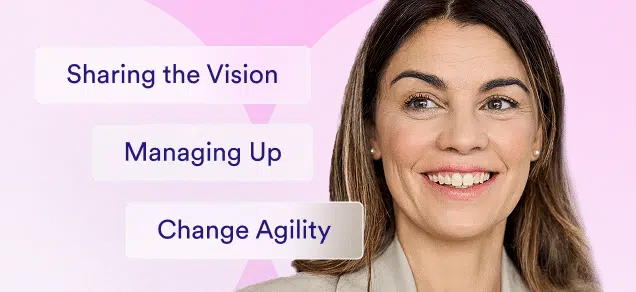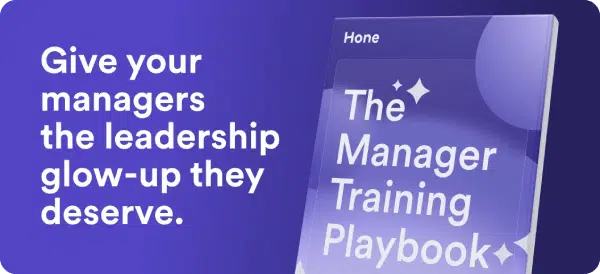Failing to prioritize diversity, equity, inclusion, and belonging (DEIB) isn’t just an oversight in today’s market — it’s a dangerous gamble that threatens your company’s success. Maybe you’ve heard statements like that before, and you’re still not convinced that you need to invest in upskilling your employees in these areas. But let’s take a look at the data around the impact of diversity and inclusion training and other DEIB initiatives.
The research shows a stark reality: A staggering 40% of employees admit to feeling isolated at work, which is often closely linked to reduced commitment and engagement within the company. But the implications of neglecting DEIB extend further than employee morale. Studies show that fostering a sense of belonging among employees can have a huge impact on business results.
For example, workplaces that excel in DEIB witness a remarkable 56% surge in job performance and a significant 50% drop in turnover risk. Plus, proactive DEIB initiatives correlate with a 75% decrease in employee sick days, showcasing a direct link between inclusion efforts and enhanced health and productivity.
What’s more: Employees who feel deeply connected to their workplace are not only more likely to recommend their company — often resulting in a 167% increase in employer promoter scores — but they also experience accelerated compensation growth. On average, they receive double the raises and are promoted 18 times more frequently than their less engaged peers.
These statistics send a very clear message: DEIB isn’t a superficial agenda item — it’s a catalyst that amplifies employee engagement and drives productivity and results across every level of the business.
Okay, so maybe you’ve convinced your leadership team and they’re fully bought in that DEIB skills are important for your workforce and the success of the company. But figuring out how to teach these skills effectively is an entirely different challenge.
A lot of HR and L&D leaders aren’t sure where to start or how to make the training meaningful for everyone. DEIB topics like bias and inclusive leadership are complex, and typical training methods — like asynchronous videos or one-off workshops — often don’t cut it. So, it’s often a struggle to create programs that really educate and engage employees in building an inclusive workplace. To bridge this gap, Hone has curated two proven diversity and inclusion training programs based on our experience working with thousands of learners.
Learning Program 1: DEIB Fundamentals
This program explores the neuroscience of inclusion, and focuses on topics like bias, microaggressions and the key differences between conformity and true belonging. Together, learners explore skills and behaviors that empower them to foster a greater culture of accountability and belonging on their team. You can use this program for all employees, including individual contributors, managers, and senior leaders.
Key skills to focus on at this stage
- Understanding biases and their impact: A deep understanding of how biases show up in the workplace enables employees to recognize and dismantle subtle, often overlooked barriers to innovation and collaboration.
- Standing up for others: A culture of allyship and trust empowers marginalized voices and drives systemic change by demonstrating collective commitment to equity and inclusion at every organizational level.
- Developing psychological safety on teams: Open dialogue and risk-taking enable diverse perspectives to thrive and lead to more innovative solutions to complex challenges.
Classes to include in this learning pathway
|
Manage Bias in the Workplace Engage conscious thinking to prevent biases in high-stakes interpersonal decisions |
Address Microaggressions on Your Team Evidence-based strategies for mitigating bias and bridging differences on your team |
|
Bridge Cultural Differences Across Your Organization Recognize the impact of cultural differences on team effectiveness and address power imbalances on teams Explore techniques and inclusive actions for improving communication across cultural barriers |
Embrace Allyship in Your Organization Behaviors aligned to “de-centering” dominant perspectives How to give behavioral praise and appreciation |
| Additional class to consider Navigate Different Intercultural Conflict Styles Explore the connection between power, privilege, and conflict Discuss techniques for addressing conflict and power imbalances Generate actions to bridge across different conflict resolution styles |
Learning Program 2: Become an Inclusive Leader
Over the course of this program, participants will develop their action plan for evoking cultural change within their team and organization. Learners will build the critical behaviors of an inclusive leader: self-awareness, curiosity, cultural intelligence, collaboration, accountability, and advocacy. You can use this program for people managers who have foundational DEIB skills and are ready to move to more advanced DEIB topics.
Key skills to focus on at this stage
- Developing awareness of self and systemic challenges: Identifying and addressing our own biases and the structural inequities within the organization fosters a more inclusive and effective leadership approach.
- Building inclusivity at work: Transforming diverse talent into a cohesive and high-performing team drives innovation and long-term organizational success by ensuring every voice is heard and valued.
- Advocating for others: Breaking down barriers to fairness and equity shows we care about all employees and helps everyone do their best work, which boosts the whole team’s success and spirit.
Classes to include in this learning pathway
|
Explore Power, Privilege & Inequity at Work Recognize the general characteristics of structural workplace inequality |
Create a Culture of Belonging Identify the current levels of belonging on your team Apply several strategies to foster belonging on your team |
|
Behaviors of an Inclusive Leader How to lead your team to embed DEI values in their work How to embrace humility and see failures as an opportunity for growth How to guide change with storytelling |
Diversity and inclusion training is a business imperative
Upskilling employees in DEIB isn’t just a trend — it’s a smart move that directly affects your company’s success. The facts speak for themselves: companies that prioritize DEIB have happier, more committed employees, lower turnover, and better productivity. But it’s not just about understanding why these skills matter; it’s about putting them into action every day.
That’s where proven diversity and inclusion training programs, like the ones from Hone, make a difference. By giving employees the tools to promote inclusivity and appreciate differences, companies create a culture where everyone feels respected and empowered. It’s not just about following rules; it’s about building a workplace where diversity fuels creativity and pushes the company forward in today’s ever-changing landscape.
Already a Hone customer? Start building your Membership programs today.



















